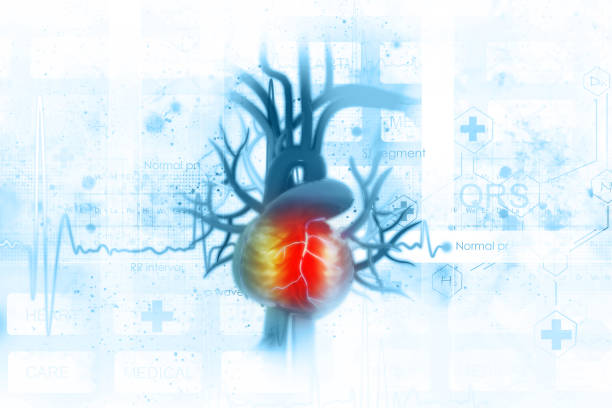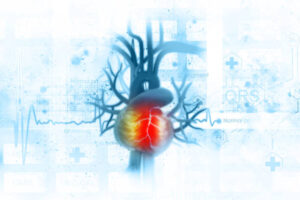
Takotsubo cardiomyopathy
Takotsubo cardiomyopathy, often referred to as “broken heart syndrome,” is a fascinating yet serious heart condition that can occur after emotional or physical stress.
This blog explores what takotsubo cardiomyopathy is, its causes, signs and symptoms, and how to adopt a lifestyle that may help in prevention.
What is Takotsubo Cardiomyopathy?
Takotsubo cardiomyopathy is a temporary heart condition that mimics the symptoms of a heart attack. It primarily affects the heart’s left ventricle, causing it to become enlarged and weakening its ability to pump blood effectively.
The name “takotsubo” comes from the Japanese word for “octopus trap,” as the left ventricle takes on a shape resembling one during the condition. Unlike typical heart attacks, takotsubo cardiomyopathy usually does not involve blocked arteries but rather results from extreme emotional or physical stress.
Causes of Takotsubo Cardiomyopathy
Understanding the triggers of takotsubo cardiomyopathy is crucial for prevention. Common causes include:
- Emotional Stress: Intense emotions such as grief, anger, or anxiety can lead to the condition. Situations like the loss of a loved one or relationship issues often serve as catalysts.
- Physical Stress: Severe illness, surgery, or sudden physical trauma can also precipitate this syndrome.
- Hormonal Changes: Fluctuations in hormones, particularly in women, may influence the onset of takotsubo cardiomyopathy.
- Other Factors: Pre-existing heart conditions and high blood pressure might increase susceptibility, although the condition can occur in individuals without any previous heart issues.

Signs and Symptoms of Takotsubo Cardiomyopathy
The signs of takotsubo cardiomyopathy can be similar to those of a heart attack, making it essential to recognize them promptly:
- Chest Pain: Sudden chest pain is one of the most common symptoms and can often lead to emergency medical visits.
- Shortness of Breath: Many individuals experience difficulty breathing, especially during physical exertion.
- Palpitations: An awareness of the heartbeat or irregular heartbeats may occur.
- Nausea or Vomiting: Some people report gastrointestinal symptoms, which can further confuse the diagnosis.
- Fatigue: Unusual tiredness or weakness can accompany other symptoms.
If you or someone you know experiences these symptoms, it’s vital to seek medical attention immediately, as early diagnosis can lead to better outcomes.
How to Avoid Takotsubo Cardiomyopathy: Diet and Lifestyle
Preventing takotsubo cardiomyopathy revolves around managing stress and adopting a heart-healthy lifestyle. Here are some effective strategies:
1. Maintain a Balanced Diet
A healthy diet can significantly impact your heart health. Consider the following tips:
- Focus on Whole Foods: Incorporate plenty of fruits, vegetables, whole grains, and lean proteins. These foods are rich in nutrients that support heart health.
- Limit Processed Foods: Processed foods often contain unhealthy fats, sugars, and salt. Reducing these can lower your risk.
- Stay Hydrated: Adequate hydration is essential for maintaining overall health and preventing stress-related health issues.
2. Manage Stress Effectively
Since emotional stress is a leading cause of takotsubo cardiomyopathy, managing stress is crucial:
- Practice Mindfulness: Engage in mindfulness techniques such as meditation or yoga to enhance mental well-being.
- Establish a Support Network: Build strong relationships with friends and family. Having a supportive network can help you navigate stressful situations more easily.
- Engage in Physical Activity: Regular exercise is a proven stress reliever. Aim for at least 150 minutes of moderate aerobic activity each week.
3. Prioritize Sleep
Adequate sleep is essential for overall health. Lack of sleep can exacerbate stress and lead to various health issues, including heart problems.
- Establish a Routine: Try to go to bed and wake up at the same time every day.
- Create a Restful Environment: Ensure your bedroom is conducive to sleep by keeping it dark, quiet, and cool.
4. Regular Health Check-Ups
Regular visits to your healthcare provider can help monitor your heart health and catch any potential issues early. Discuss any family history of heart disease or personal risk factors with your doctor.
Conclusion
Takotsubo cardiomyopathy is a compelling condition that underscores the connection between emotional health and physical well-being. By understanding its causes, recognizing the signs and symptoms, and adopting a proactive approach to lifestyle and diet, you can significantly reduce your risk. Remember, taking care of your heart is essential, not just physically but emotionally as well.
In conclusion, it’s fascinating to note that while takotsubo cardiomyopathy primarily affects women—especially post-menopausal women—men can also experience this condition. The interplay between emotional stress and heart health continues to be a crucial area of research, emphasizing the importance of mental wellness in maintaining a healthy heart.







